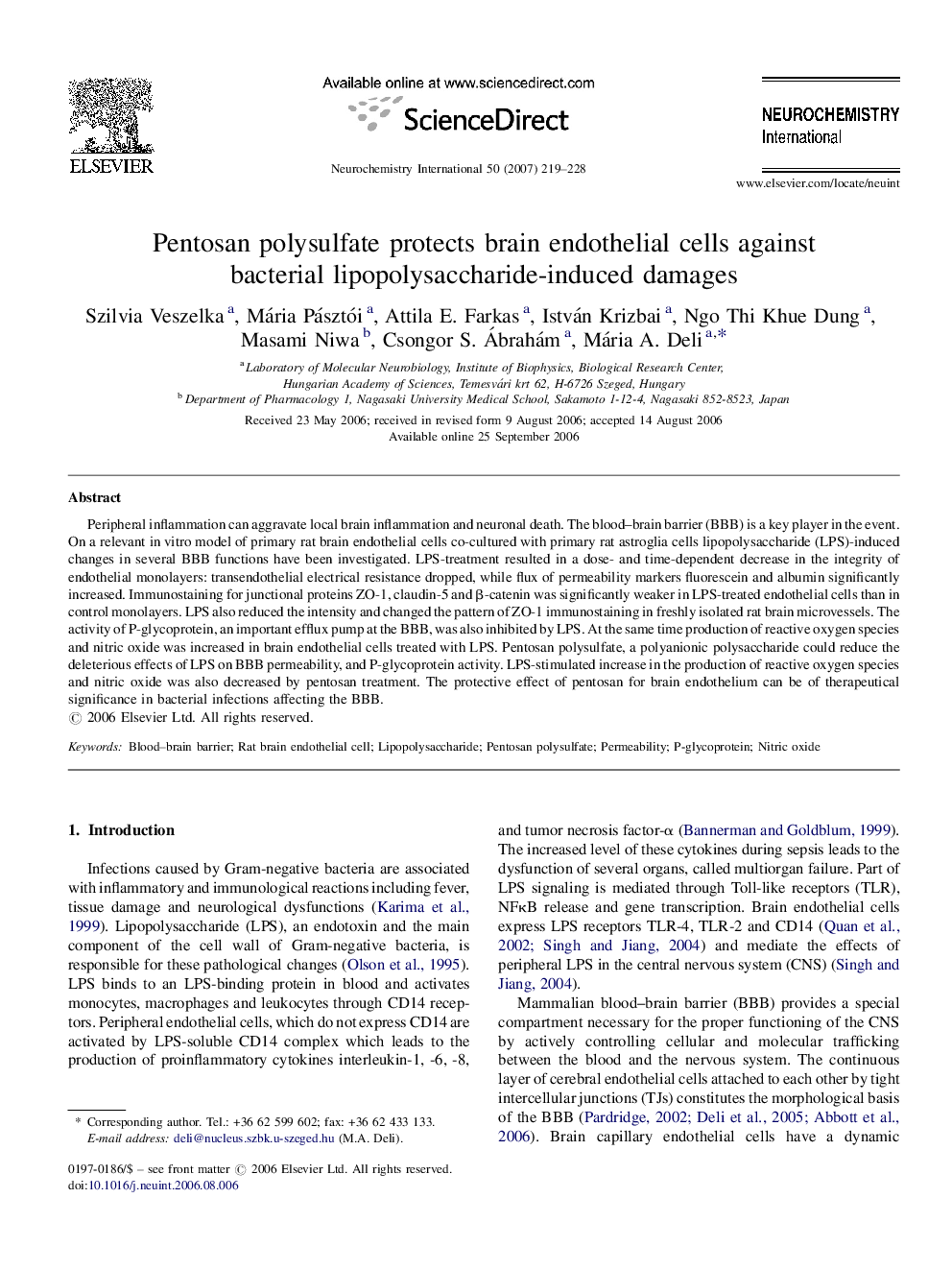| Article ID | Journal | Published Year | Pages | File Type |
|---|---|---|---|---|
| 2202250 | Neurochemistry International | 2007 | 10 Pages |
Peripheral inflammation can aggravate local brain inflammation and neuronal death. The blood–brain barrier (BBB) is a key player in the event. On a relevant in vitro model of primary rat brain endothelial cells co-cultured with primary rat astroglia cells lipopolysaccharide (LPS)-induced changes in several BBB functions have been investigated. LPS-treatment resulted in a dose- and time-dependent decrease in the integrity of endothelial monolayers: transendothelial electrical resistance dropped, while flux of permeability markers fluorescein and albumin significantly increased. Immunostaining for junctional proteins ZO-1, claudin-5 and β-catenin was significantly weaker in LPS-treated endothelial cells than in control monolayers. LPS also reduced the intensity and changed the pattern of ZO-1 immunostaining in freshly isolated rat brain microvessels. The activity of P-glycoprotein, an important efflux pump at the BBB, was also inhibited by LPS. At the same time production of reactive oxygen species and nitric oxide was increased in brain endothelial cells treated with LPS. Pentosan polysulfate, a polyanionic polysaccharide could reduce the deleterious effects of LPS on BBB permeability, and P-glycoprotein activity. LPS-stimulated increase in the production of reactive oxygen species and nitric oxide was also decreased by pentosan treatment. The protective effect of pentosan for brain endothelium can be of therapeutical significance in bacterial infections affecting the BBB.
